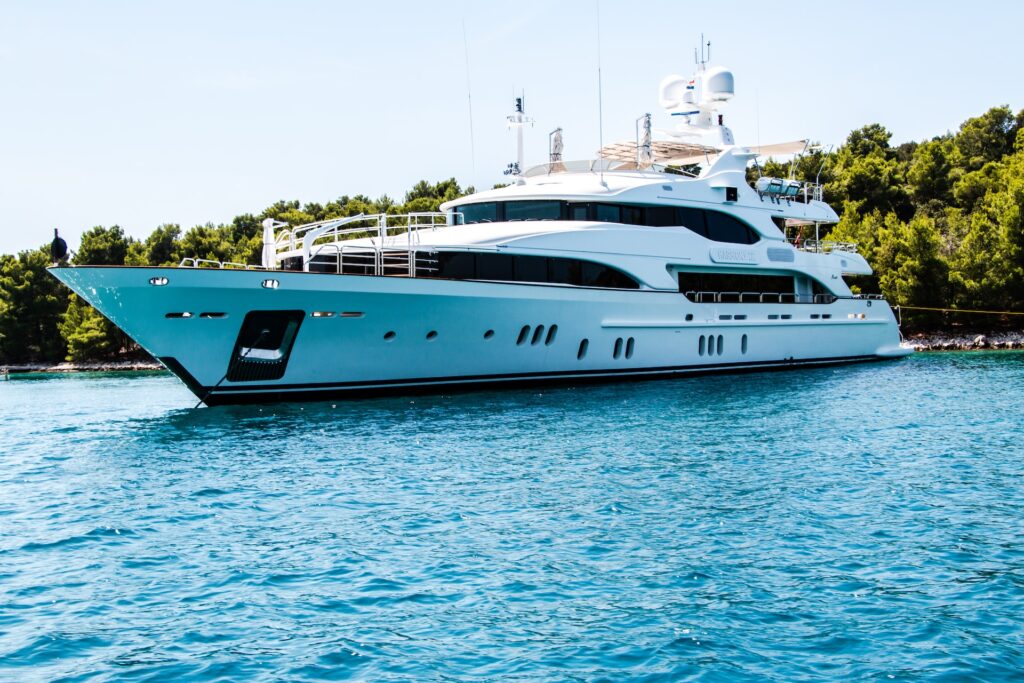Yacht ownership is a luxurious and expensive endeavor, but nothing quite compares to the joy of its immense style and vast potential for unforgettable experiences. It’s also an investment that requires maintenance and responsible ownership to ensure you enjoy it the most. As with any large purchase, there are several factors you should consider before taking on yacht ownership — beyond selecting the perfect model or design. Here are six tips on responsible yacht ownership that can help guide your decision-making process when buying, owning, and enjoying your luxury vessel.
1. Understand Your Boat Maintenance Responsibilities
Anyone who intends to buy a yacht should understand the maintenance and upkeep required for their vessel. From routine engine and electrical service checks to understanding the latest hull repair techniques, it pays to know what needs to be done regularly. In the words of the pros who offer top-notch yacht shipping services by Cross Chartering, investing the time to learn proper maintenance and upkeep of your yacht is essential for a lifetime of quality boat performance. It’s also important to become familiar with effective cleaning procedures, both internal and external, so as not to compromise the aesthetic quality of your yacht.
Taking the time to learn how various aspects of your boat operate and how best to maintain them will ensure you have a safe and comfortable time on the open waters – plus keep your overall expenses in check.
2. Follow Regulations for Safe Operation
Whether you just purchased a new yacht or have been sailing around for years, it’s important to follow safety regulations to ensure the security and success of your voyages. Before heading out on the open seas, familiarize yourself with all relevant rules and regulations issued by the governing body of your locale — this will allow you to ensure that your vessel is equipped with all necessary safety equipment.
Review navigation requirements to ensure you know where it’s safe to go and how far you can venture before passing into prohibited waters. Spending some time studying these topics could save a world of trouble later.
3. Be Prepared for Emergencies
Going out on the water can be exciting and fun, but staying safe is important by always being prepared for potential emergencies. Having a plan in mind is key in case something goes wrong. This could mean anything from getting lost, running into bad weather conditions, or even something as simple as forgetting supplies. A few key steps you can take are having your boat checked and maintained are:
- Ensuring your emergency contact information and location are readily available.
- Making sure you have the necessary life-saving equipment on board ( a life raft, and fire extinguisher).
- Stocking up on supplies like food, water, and first aid kits in case of an unexpected delay or injury.
- Research your destination and potential routes to know how far to go and where to turn around.

4. Invest In Quality Accessories And Equipment
When it comes to on-the-water accessories and equipment, there’s one motto, you should stick to quality over quantity. Investing in reliable, long-lasting items such as anchors, mooring lines, dock lines, and life jackets will prove invaluable in unexpected difficult conditions. Durable materials offer an extra layer of security for an enjoyable and safe boating experience since you’ll know that your gear isn’t likely to break down during a crucial moment. Don’t settle for cheaper alternatives; invest in peace of mind by choosing the highest quality that fits your budget.
5. Create A Budget For Operating Expenses
The first steps towards a successful sailing experience are understanding and planning your annual budget. Calculating fuel costs and all other operating-related expenses ensures that you know what to expect each year financially. Be sure to consider the fuel cost for operating the vessel’s engine and electricity generators if necessary.
In addition, inspect whether there are any maintenance fees associated with mooring or marina costs that need to be attended to throughout the year. Planning out your finances will make for a stress-free and enjoyable sailing adventure without any unexpected financial surprises.
6. Learn The Basics Of Yacht Insurance Policies
Yacht insurance is an important investment for any boating enthusiast. Not only does it mean greater peace of mind when on the water, but it can also help provide financial protection in a disaster like a collision or sinking. Before you purchase any yacht insurance policy, understand what is and isn’t covered.
Knowing what situations your policy covers can save you from dealing with unexpected financial losses due to under-coverage and can give you added security and assurance. A complete understanding of your yacht insurance policy will make all the difference if unexpected events occur that would otherwise leave you stranded or able to recoup some of what was lost.
Sailing is a wonderfully rewarding experience but comes with some risks. Taking the time to plan and prepare for potential emergencies, investing in quality accessories and equipment, creating an operational budget, and understanding your yacht insurance policy can go a long way toward keeping you safe on the water and allowing you to enjoy your sailing adventures to their fullest.






